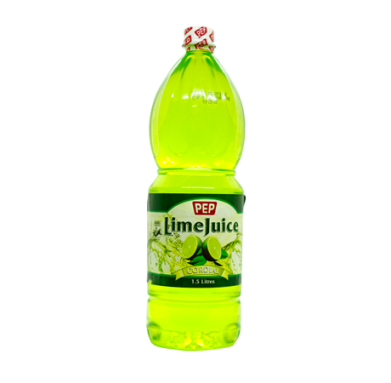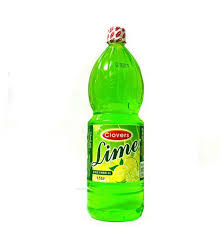Source: https://www.peptang.com/product/lime-juice/ Source: https://epepea.com/supermarket/product/clovers-lime-juice-1-5ltrs#!
On 5th February, 2021, in the case of Premier Food Industries Limited v. Triclover Industries (K) Limited, the judge ruled in favor of the Plaintiff, Premier Food Industries Limited; who had instituted a case against the Defendant, Triclover Industries (K) Limited, claiming that they had infringed on their trademark and that they were passing off their goods as those of the Plaintiff. In this piece, we will review this case.
The Plaintiff, a food processing company, manufactures different food products, including fruit juices. The Defendant, also a food processing company, manufactures vast classes of products, including food products such as fruit juices. This dispute was over ‘Pep Lime Juice Cordial’ for the Plaintiff, and ‘Clovers Lime Juice Cordial’ for the Defendant.
The Plaintiff claimed that the Defendant used a mark similar to theirs and intentionally presented their lime juice product with similar packaging features, with the aim to deceive and confuse consumers.


Source: https://www.peptang.com/product/lime-juice/ Source: https://epepea.com/supermarket/product/clovers-lime-juice-1-5ltrs#!
The Judge highlighted three issues for determination;
-
Whether the Defendant had infringed upon the Plaintiff’s trademark,
-
Whether the Defendant had been passing off its product as that of the Plaintiff, and
-
Whether the Plaintiff was entitled to the orders sought in the suit.
What is trademark infringement?
This is the unauthorized use of a trademark or service mark on or in connection with goods and/or services in a manner that is likely to cause confusion, deception, or mistake about the source of the goods and/or services.1A claim for trademark infringement is only available for registered trademarks. Section 5 of the Trademark Act specifically disentitles institution of infringement proceedings for unregistered trademarks. However, the section reserves the common law right to institute passing off proceedings in cases of unregistered marks. In Alpex Consulting Africa Limited (ACAL) & 2 others v Associates Consulting Africa Limited (Trading as ACAL Limited) & 5 others [2021]guided by section 7 of the Act, the court stated that in order succeed in an action for infringement or breach of a trademark, the Plaintiffs ought to prove that it is the registered proprietor of the mark, that the alleged infringement was a mark identical which, or so nearly, resembles that of the registered mark so as to be likely to deceive or cause confusion in the course of trade or in connection with the provision of services in respect of which it is registered, that the use of the mark is without consent or authority of the proprietor; and that the use of the mark is such that it is likely to cause injury or prejudice to the proprietor or licensee of the trade mark.
In the proceedings, both parties presented their respective trademark certificates indicating exclusive rights to the words ‘PEP’ for the Plaintiff, and ‘Clovers’ for the Defendant. The parties had each disclaimed the exclusive right to use the words ‘lime’ ‘juice’ ‘cordial’.
Although the Plaintiff had a registered trademark, the Judge found that there was no infringement since the words “PEP” and “Clovers” were not similar. Similarity tests for trademark can only be conducted on the part (s) which the party claiming infringement is exclusively entitled to.2
What is the common law right of passing off?
Passing off is a common law tort which protects rights that are not formally registered yet are capable of registration or are difficult to register as trademarks but have acquired goodwill. As per Republic v Anti-Counterfeit Agency Exparte Caroline Mangala t/a Hair Works Saloon [2019] eKLR the law of passing off prevents one trader from misrepresenting goods or services as being the goods and services of another; and prevents a trader from holding out their goods or services as having some association or connection with another when it is not true.3Passing off is a tort of strict liability; meaning the intention of the trader liable for passing off is irrelevant.4
Reckitt & Colman Products Ltd v Borden Inc [1990] 1 WLR 491; (1990) All ER 873;5provided that a passing off claim must meet the following three key requirements:
-
the claimant’s goods or services have acquired a goodwill in the market and are known by some distinguishing name, mark or other indicium;
-
there is a misrepresentation by the defendant, intentional or otherwise, leading or likely to lead the public to believe that goods or services offered by them are goods or services of the claimant; and
-
the claimant has suffered or is likely to suffer damage as a result of the erroneous belief engendered by the defendant’s misrepresentation.6
To establish good will, as pointed out in Williams t/a Jenifer Williams & Associates & another v Life Line Southern Transvaal, the plaintiff has to show that the name, get-up7 or mark they use has become distinctive of their goods or services, in the sense that the public associate the name, get-up or mark with the goods or services they market.8 In other words, the Plaintiff should prove that their goods or services have acquired reputation among the public. In the case, the Plaintiff adduced evidence describing their product and its place in the market. They showed that their product had been in the market longer and had acquired some reputation, thus satisfying this element.
On misrepresentation, it is the Plaintiff’s duty to show that the Defendant’s goods or services are deceitful and lead consumers (intentionally or not) to believe that the Defendant’s goods or services are the Plaintiff’s (confusing). The Plaintiff in this case, described the products in dispute, and pointed out that the get-up of the Defendant’s product was similar to theirs and could deceive consumers (refer to images above). Supported by the case of Beiersdorf East Africa Limited vs Emirchem Products Limited [2002]eklr, the court established misrepresentation on this basis. Additionally, in the case of Reckitt & Colman Products Ltd v Borden Inc, the court stated that similarity of get-up may be such that passing off is likely to occur even though the trademarks or names are wholly different.9
Moreover, the Judge, in her observation, noted that the mark the Defendant used on their bottles, exhibited in the supermarkets, was not the logo they registered.10 To this she stated that the only reason the Defendants would run away from their own registered mark, which was different and distinct from the Plaintiffs registered mark, was because their intention was to misrepresent their goods as that of the Plaintiff by confusing the public and passing off their product as that of the Plaintiff.11
Lastly, the Plaintiff should have suffered or be likely to suffer damages as a result of the misrepresentation by the defendant. In the current case, the Plaintiff gave evidence showing a drop in their sales since the Defendant’s product entry into market. However, there was no evidence linking the drop of sales to the introduction of the Defendant’s product.As a result, the court found that the Plaintiff had not proven damages. As a guide, the court stated that the Plaintiff could have produced their audited accounts for the periods in question, or call an accountant to testify on their behalf.12
In this case, the Judge concluded that there was passing off since the Plaintiff had established goodwill and similarities in the get up. Further, it was concluded that the Defendant intentionally misrepresented their product when they disregarded a trademark they had registered to use one that was similar to the Plaintiff. Accordingly, the Judge ruled in favor of the Plaintiff, awarded damages and issued an injunction to restrain the Defendant’s from selling their juice under the dispute. To the detriment of the Defendant, the court also ordered removal of all of their juice products from any retail, wholesale, shops or any points of sale meaning no further sales.
In conclusion, this case presents a lesson to be learnt, not only by product manufactures, but also by any market player. When presenting a product or service to the market, be keen on having not only the trademark, but also the get-up of the same, distinctive.
1. ‘About Trademark Infringement’, https://www.uspto.gov/page/about-trademark-infringement
2. ‘Introduction to Trademark Law & Practice The Basic Concepts A WIPO Training Manual’, WIPO Publication No 653 (E), <https://www.wipo.int/edocs/pubdocs/en/wipo_pub_653.pdf>
3. Paragraph 38, Republic v Anti-Counterfeit Agency Exparte Caroline Mangala t/a Hair Works Saloon [2019] eKLR
4. https://www.lexisnexis.co.uk/legal/guidance/elements-of-passing-off-goodwill (the entire paragraph is from this link)
7. Get-up refers to the whole external appearance or look-and-feel of a product, including any marks or other indicia used.
10. Paragraph 45, Premier Food Industries Limited v.Triclover Industries (K) Limited; the logo which the Defendants registered for their lime juice has ablue background with the name ‘Clovers’ in white lettering against a red background with a yellow ring around it. The product being presented for sale by the Defendant has adifferent logo. It does not have the blue background or the yellow ring.
12. Paragraph 53, Premier Food Industries Limited v Triclover Industries (K) Limited [2021] eKLR